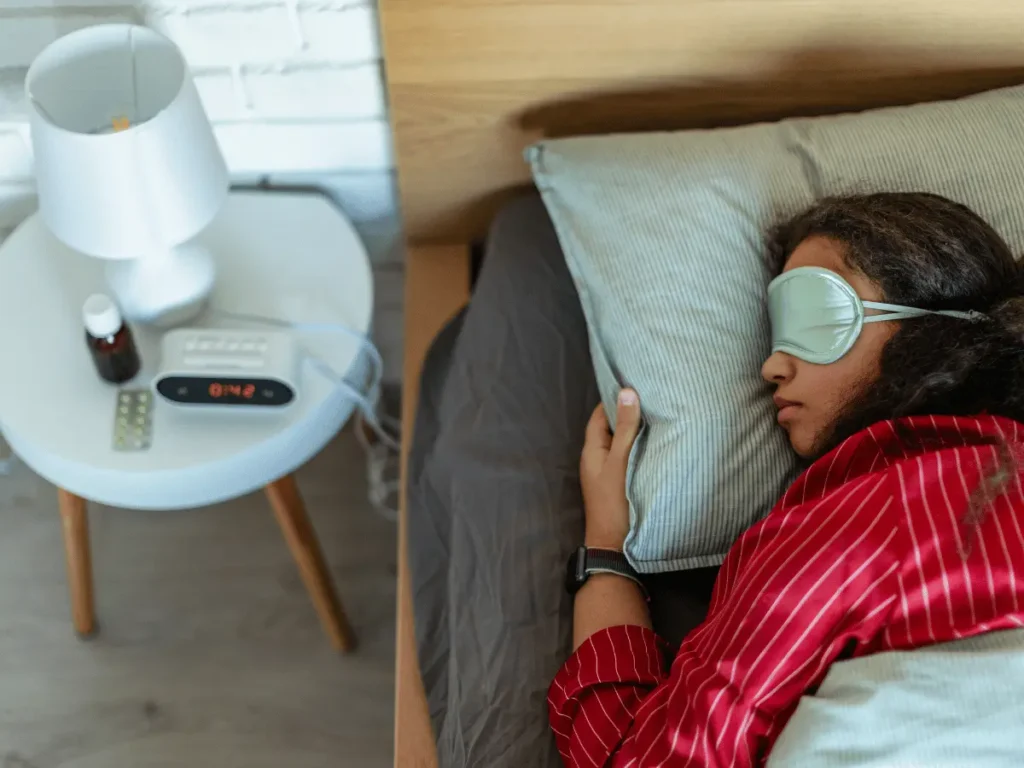Most of us think of our pillows as a source of comfort. It’s soft, cozy, and part of our nightly wind-down routine. But what if your pillow is actually the reason you wake up with a stiff neck, sore shoulders, or constant headaches?
Poor pillow support can lead to serious long-term tension in your upper body. While this isn’t talked about much, the effects of an unsupportive pillow go far beyond just a bad night’s sleep. And the worst part? Most people don’t even realize their pillow is the problem.
Let’s break down how your pillow causing neck pain and could be silently affecting your health, and what simple changes you can make to fix it.
How Pillow Position Affects Your Neck and Shoulders
When you sleep, your head, neck, and shoulders should stay in a neutral position, meaning your spine is straight, your muscles are relaxed, and there’s no unnecessary pressure on any one area. But for many people, this isn’t the case.
If your pillow is too flat, too thick, or loses support during the night, your neck often bends at an unnatural angle. This creates tension in the trapezius muscles, the muscles that connect your neck, shoulders, and upper back. When these stay contracted overnight, they never get the chance to recover.
The result?
You wake up with:
- Tight neck and shoulder muscles
- Morning headaches or migraines
- A feeling of fatigue, even after sleeping 7–8 hours
- Daily stiffness or discomfort that builds over time
The Sleep-Tension Cycle No One Talks About
When your neck and shoulders are held in a strained position for hours, night after night, it creates a “tension cycle.” This starts in the neck, travels into the shoulders, and eventually settles deep into your upper back. Over time, this tightens muscles, restricts blood flow, and leads to chronic discomfort.
Also Read How Yoga Helps You Sleep Better at Night
This is also one reason traditional treatments like massages or heat pads may only give temporary relief. Unless you change what’s happening during sleep, the problem keeps coming back.
Signs Your Pillow Might Be Making Things Worse
You may not need a fancy diagnosis to figure out your pillow is working against you. Ask yourself:
- Do you often wake up with pain in your neck or shoulders?
- Does your sleep feel light or unrefreshing?
- Are you experiencing headaches more often in the morning?
- Do you change sleep positions frequently to get comfortable?
- Have your upper back or trap muscles felt stiff lately?
If you answered yes to most of these, your pillow might be a key part of the problem.
Simple Ways to Improve Neck Support at Home
The good news is you don’t need expensive treatments or special equipment to support your neck better at night. Here are some simple, affordable steps you can take today.
1. Test your pillow height
Lie on your side. Your pillow should fill the space between your ear and shoulder, keeping your head level with your spine. If your neck tilts up or down, the pillow is likely too thick or too thin.
2. Try a rolled towel under your neck
Roll up a hand towel and place it inside your pillowcase, just under your neck. This adds support without needing a new pillow and helps your muscles relax more evenly.
3. Use a pillow designed for your sleep position
- Side sleepers need higher support for the neck and head
- Back sleepers need moderate support with a slight neck curve
- Stomach sleepers need very soft, low support (or none at all)
4. Stretch before bed
Do gentle neck rolls or shoulder stretches for 5 minutes before sleep. This helps release tension built up during the day and preps your muscles for rest. You can try these Bedtime Exercises to Improve Sleep and Boost Metabolism
5. Stay consistent with your setup
Your muscles love routine. Once you find a setup that keeps your neck in a neutral position, stick with it. Changing pillows frequently or using poor substitutes (like stacked cushions) can undo your progress.
Don’t Wait Until It Becomes Chronic
Neck and shoulder tension isn’t something to ignore. Over time, the strain can cause postural imbalances, chronic headaches, reduced mobility, and sleep quality issues.
Making small changes now, like adjusting your pillow setup or adding a simple neck roll, can reduce discomfort and protect your long-term health.
You don’t need a special gadget or an expensive pillow to start. What matters is choosing support that works for your body, keeps your spine aligned, and lets your muscles truly rest while you sleep.

















Leave a Reply
View Comments